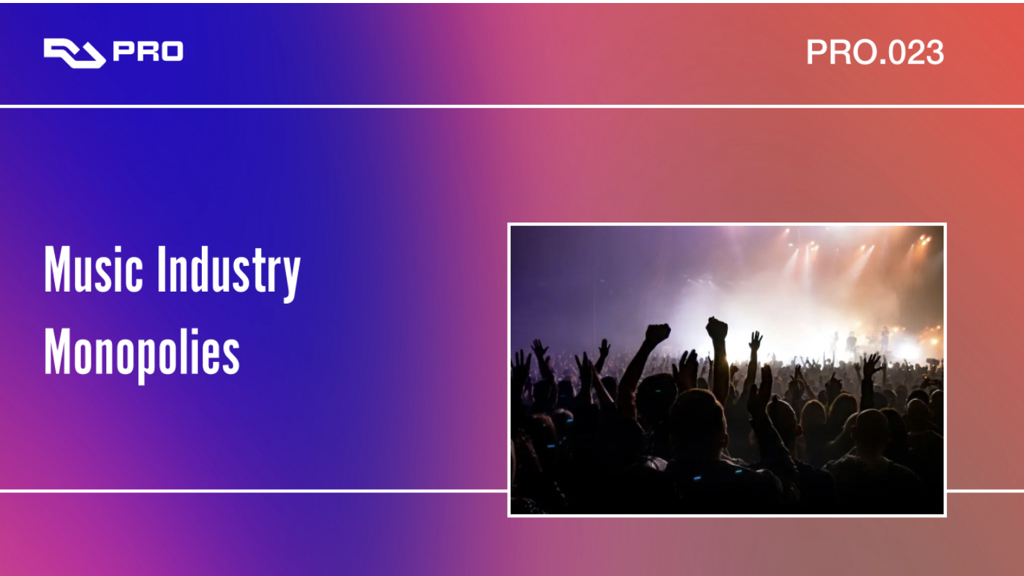- How will the US government’s lawsuit against Live Nation and Ticketmaster impact mergers and acquisitions deals in music?
-
Welcome to the RA Pro Newsletter: a bite-sized look at the trends and themes impacting businesses in the electronic music industry. Sign up to the full newsletter to get early access to each release and read all archived editions.
The US government’s highly awaited lawsuit against Live Nation and its subsidiary Ticketmaster could bring more crackdowns on monopolisation in the music business.
Live Nation and Ticketmaster, which merged in 2010, are accused of using their dominant market position to hinder rivals and force US fans to pay more for tickets. The government wants to break up the two entities and end their ticketing agreement with real-estate firm Oak View Group, which operates massive venues like Coachella Valley Arena and New York’s UBS Arena. In response, Live Nation said the lawsuit ignored the real cause of higher ticket prices (rising production costs, artist popularity and scalping), dismissing claims of monopoly power. The US government is “waging war” on vertical integration, it said, calling the lawsuit “anti-business.”
If a jury finds the entertainment behemoth violated the Antitrust Act, it would be forced to restructure or split into smaller companies. The corporation is the latest target of US officials who seem intent on policing Big Tech. They’ve so far gone after Google, Apple, Amazon and Meta for antitrust in recent years. The European Union has also attacked Apple, fining the tech giant $2 billion for restrictions on its App Store that hurt competition from music streaming rivals.

For a company to be considered a monopoly, it must have the long-term ability to increase prices or exclude competitors through policies like exclusive agreements or predatory pricing, according to an official definition. For instance, in the early 2000s, a suite of major record labels, including The Big Three (Sony Music, Warner Music and Universal), agreed to pay out $67.3 million to settle antitrust charges after being accused of using ad practices that inflated CD prices.
The US government’s focus on business competition comes amid heightened mergers and acquisitions (M&A) activity in music. More stakeholders from Big Finance are setting up shop across the industry—just look at the talent agency space. Investment holding company Artémis bought a majority stake in Creative Artists Agency last year while Endeavour, parent company of William Morris Endeavor, was acquired by private equity firm Silver Lake in April. Publishing is equally hot–New Mountain Capital bought BMI last year. Sweden’s Pophouse (owner of rights to Swedish House Mafia and Avicii) took a majority share of Cyndi Lauper’s publishing and recorded music royalties earlier this year. But with US watchdogs now closely monitoring for competition concerns, corporate deal-making in music could potentially slow following an explosive few years.
Perspectives on the ground

Wilson Sonsini Goodrich & Rosati, a major multinational law firm that specialises in technology and business, thinks the Live Nation-Ticketmaster lawsuit will increase scrutiny over US merger deals.
The case “exemplifies [President Biden’s] administration’s willingness to rethink the merger policy of the past,” it said in a new report. “The antitrust agencies will point to [the Department of Justice’s] lawsuit as evidence that it should block more mergers between companies in adjacent markets, rather than focusing enforcement efforts on mergers between horizontal competitors.”
Other experts don’t anticipate any pause in music dealmaking.
“No matter what happens to Live Nation Entertainment, the music industry as a whole–whether it’s the record labels, streaming services, music publishers or music venues–is trending toward more consolidation and monopolistic behaviour,” professor David Arditi from the University of Texas at Arlington, who has researched heavily on the streaming business, wrote in a recent op-ed.
In case you missed it: Important industry news
• Hacking group steals personal data of 560 million Ticketmaster users in alleged data breach
• How the Music Industry is in a New Age of Arrogance
• Daddy Kev unveils AI-powered app for music contracts, royalty audits
